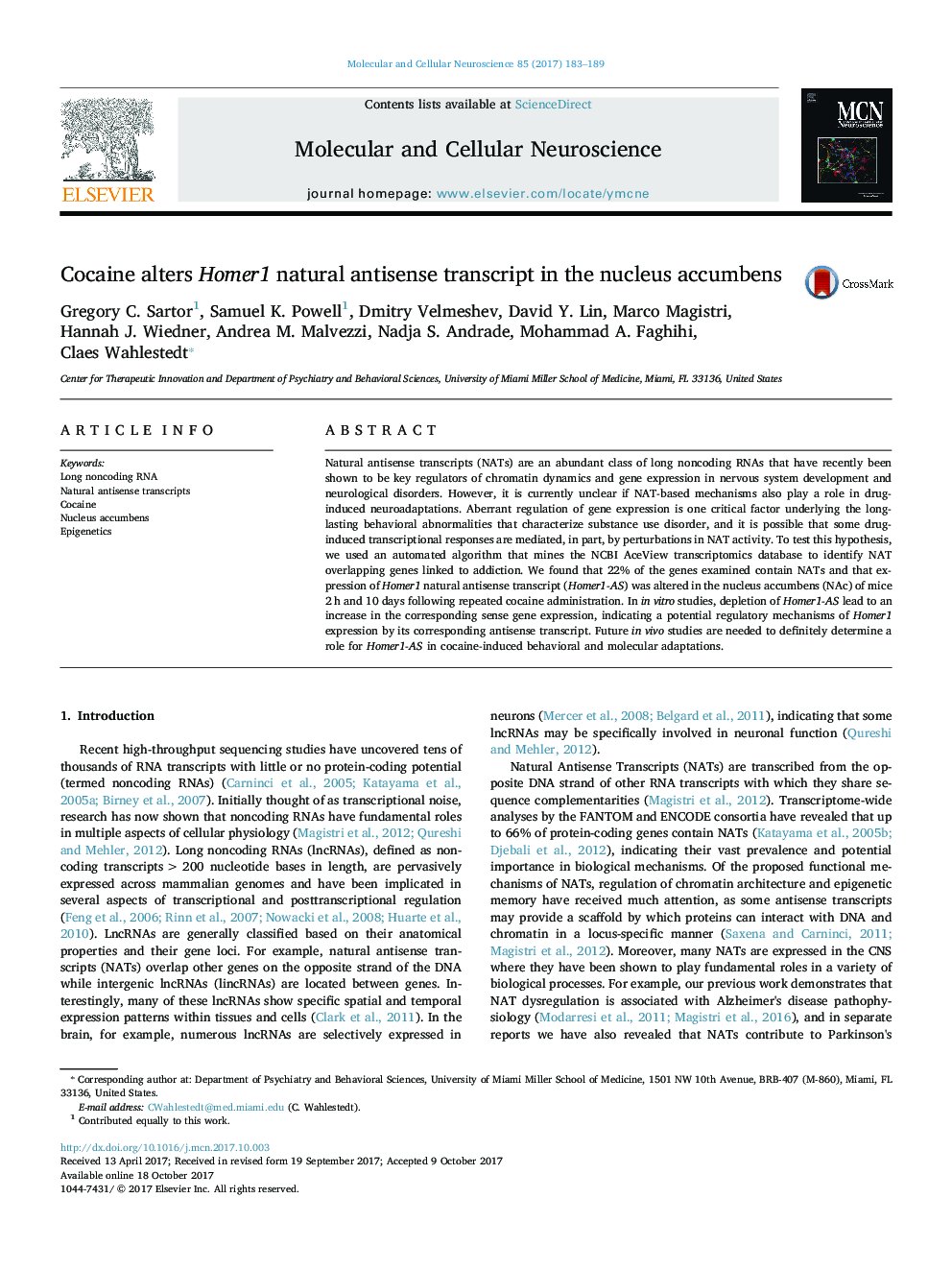| Article ID | Journal | Published Year | Pages | File Type |
|---|---|---|---|---|
| 8478419 | Molecular and Cellular Neuroscience | 2017 | 7 Pages |
Abstract
Natural antisense transcripts (NATs) are an abundant class of long noncoding RNAs that have recently been shown to be key regulators of chromatin dynamics and gene expression in nervous system development and neurological disorders. However, it is currently unclear if NAT-based mechanisms also play a role in drug-induced neuroadaptations. Aberrant regulation of gene expression is one critical factor underlying the long-lasting behavioral abnormalities that characterize substance use disorder, and it is possible that some drug-induced transcriptional responses are mediated, in part, by perturbations in NAT activity. To test this hypothesis, we used an automated algorithm that mines the NCBI AceView transcriptomics database to identify NAT overlapping genes linked to addiction. We found that 22% of the genes examined contain NATs and that expression of Homer1 natural antisense transcript (Homer1-AS) was altered in the nucleus accumbens (NAc) of mice 2Â h and 10Â days following repeated cocaine administration. In in vitro studies, depletion of Homer1-AS lead to an increase in the corresponding sense gene expression, indicating a potential regulatory mechanisms of Homer1 expression by its corresponding antisense transcript. Future in vivo studies are needed to definitely determine a role for Homer1-AS in cocaine-induced behavioral and molecular adaptations.
Related Topics
Life Sciences
Biochemistry, Genetics and Molecular Biology
Cell Biology
Authors
Gregory C. Sartor, Samuel K. Powell, Dmitry Velmeshev, David Y. Lin, Marco Magistri, Hannah J. Wiedner, Andrea M. Malvezzi, Nadja S. Andrade, Mohammad A. Faghihi, Claes Wahlestedt,
